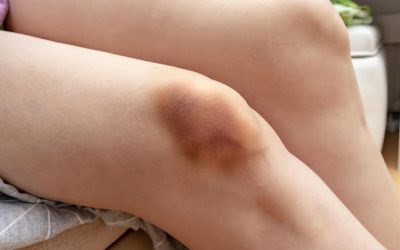Content
People can experience symptoms of intolerance when they encounter certain ingredients in alcoholic beverages. In some cases, reactions can be triggered by a true allergy to a grain such as corn, wheat or rye or to another substance in alcoholic beverages. These include grains like wheat, barley, and rye used to make beer, which can affect people with celiac disease, non-celiac gluten sensitivity, and wheat allergies. Red wine contains signs of alcohol allergies high levels of histamine and may cause headaches, congestion, and itching in people with histamine intolerance. This article looks at some of the possible causes of alcohol allergy or intolerance. It also offers tips on how to drink alcohol safely if you have an allergy or intolerance to any ingredient used to make wine, beer, or distilled spirits. In general, doctors identify an allergy based on the production of antibodies.
- In Hodgkin’s disease, the pathogenesis of alcohol-induced pain is not known.
- Alcohol intolerance occurs when your body doesn’t have the proper enzymes to break down the toxins in alcohol.
- Many people think that alcohol allergy and alcohol intolerance are the same thing, but they’re not.
- It helps to read the product label, although many ingredients used in the fermentation or distillation process may not be included.
- In addition to carrying an epinephrine auto-injector, persons with an alcohol allergy should wear a medical-identification bracelet highlighting their condition.
A skin prick test should take place in a medical setting in case of a severe allergic reaction. There are several ways for a doctor to diagnose an alcohol allergy or intolerance, including the approaches below. If someone experiences a severe allergic reaction, they should go to the emergency room immediately.
Histamine Intolerance
Therefore, if you have celiac disease or non-celiac gluten sensitivity, you’ll need to steer clear of conventional beer. Because someone suffering from an alcohol allergy must refrain from drinking entirely in order to remain healthy, they may need help to do so.

Gin, vodka, and whiskey are all made from gluten-containing grains such as wheat, rye, and barley. Even so, the American Dietetic Association considers these distilled spirits safe for people with celiac disease.
Sep Can Alcohol Cause Allergies?
If they suspect you have a true allergy to alcohol or another ingredient in alcoholic beverages, they will likely conduct allergy testing. The most common type of allergy testing is the skin prick test.
Do you really have a penicillin allergy? – Harvard Health
Do you really have a penicillin allergy?.
Posted: Tue, 26 Feb 2019 08:00:00 GMT [source]
This is done by putting a bit of alcohol on a cotton pad and taping it to your arm. When it’s removed, your skin will be checked for signs of swelling, hives, or redness. Alcohol intolerance is sometimes referred to as alcohol sensitivity. The enzyme diamine oxidase breaks down histamine that people consume from foods and beverages. If people do not produce enough of this enzyme, they may not break down histamine efficiently, which may lead to intolerance symptoms. If people experience symptoms after drinking alcohol, they should speak with a doctor for further advice.
Skin Prick Test
Or maybe that beloved pint of beer suddenly turns into a stuffed nose? Then you might have developed a sudden intolerance to alcohol. Your doctor may perform a physical exam or order a skin test or blood test to determine whether you have an alcohol allergy. Some people have a hard time digesting alcohol because of a lack of an enzyme called aldehyde dehydrogenase . You may experience an allergic reaction to alcohol when you consume cough syrup that contains codeine. This is often referred to as an alcohol allergy — although not a true allergy.
Physicians often diagnose alcohol intolerance based exclusively on the symptoms experienced and the fact that the symptoms develop immediately after drinking alcohol. Doctors also tend to rule out alcohol allergy before diagnosing alcohol intolerance. Genetic tests can also be done to evaluate if there are problems with the genes that make alcohol dehydrogenase. However, this is not always the cause of alcohol intolerance. Symptoms of an allergic reaction to alcohol include nausea, hives, and cramps.
How can you treat alcohol allergy?
By the end of this guide, you’ll have a better understanding of if you have an alcohol allergy, alcohol intolerance, or none of the above. Of course, be sure you’re staying hydrated when drinking too – this will help your body process alcoholic beverages more effectively. By knowing what ingredients cause you issues, you can avoid those alcoholic drinks and make an informed decision about what to drink. This condition can also make pre-existing asthma worse, so it’s important to keep an eye on your symptoms.
